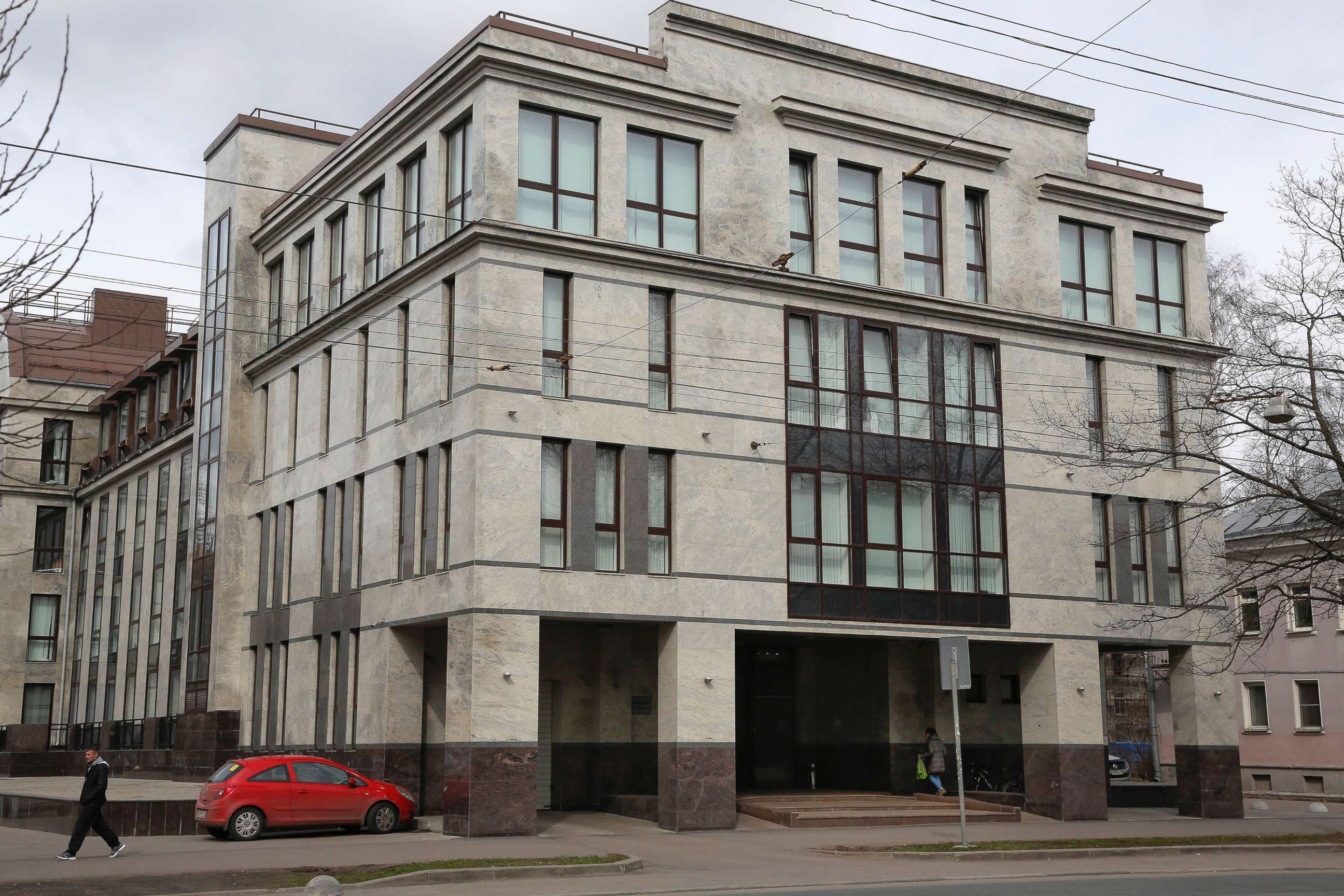Woman from Russian 'troll factory' that targeted 2016 election briefly detained in Minsk
Anna Bogacheva was one of 13 Russians charged by Robert Mueller in 2018.
A Russian woman indicted by special counsel Robert Mueller as an employee of the Russian "troll factory" that conducted a propaganda campaign targeting the 2016 U.S. presidential election was briefly detained and then released in Belarus on Tuesday, reportedly at the request of the United States.
The Russian foreign ministry on Tuesday confirmed that the woman, Anna Bogacheva, was detained in Minsk by Belorussian law enforcement agencies, but did not give any details on why she had been held. Alexander Malkevich, a Russian rights ombudsman who has previously linked himself to the troll factory, wrote on social media that according to his sources Bogacheva had been detained "by Interpol at the request of the U.S." in relation to the election meddling in 2016.
Bogacheva was one of 13 Russians charged by the Department of Justice in February 2018 as part of Mueller's investigation into Russia's efforts to interfere in the 2016 election. In the indictment, Bogacheva and the others were accused of working at the Internet Research Agency, the St. Petersburg-based company, better known as a troll factory, which prosecutors said churned out tens of thousands of divisive social media posts in an attempt to influence the American electorate. For those efforts, the Justice Department chose to charge Bogacheva and the others, along with the Internet Research Agency, with defrauding the United States.
The Internet Research Agency was set up and funded by a businessman viewed as close to Russian President Vladimir Putin. The businessman, Evgeny Prigozhin, was nicknamed "Putin's Chef" because he runs a catering company that has supplied state events. Prigozhin, the IRA and his catering firm, Concord Catering and Concord Management, were also charged in the same Justice Department indictment.
Bogacheva herself was accused of working at the IRA from at least April 2014 to June 2014, according to the Justice Department indictment. She allegedly worked on the "Translator" project, the effort by the IRA that specifically targeted the U.S. population with English-language posts on social media platforms, including YouTube, Facebook and Instagram. The indictment alleged Bogacheva had overseen the project's data analytics department.

In addition, Mueller's investigators said Bogacheva was one of a group of IRA employees that had traveled to the United States in summer 2014 with the goal of collecting "intelligence" for the IRA's disinformation operations.
"BOGACHEVA, together with other Defendants and coconspirators, planned travel itineraries, purchased equipment (such as cameras, SIM cards, and drop phones), and discussed security measures (including "evacuation scenarios") for Defendants who traveled to the United States," the indictment read. It said Bogacheva had traveled widely, visiting Nevada, California, New Mexico, Colorado, Illinois, Michigan, Louisiana, Texas and New York between June 4 and June 26, 2014.
Bogacheva was also charged with lying on her visa application for that trip.
None of the 13 Russians indicted for their work at the Internet Research Agency have ever been arrested and this would be the first time a Russian charged by Mueller in relation to the election interference operation had been detained. In addition to the IRA indictments, Mueller's investigation also led to the charging of 12 Russian intelligence officers accused of hacking email accounts linked to the Democratic Party and then releasing them online. U.S. officials have said they believe there is little chance any of the Russians charged under Mueller will ever face a U.S. courtroom. Russia has refused to make any of those charged available to U.S. investigators.
Her detention in Belarus, however, seems to have been short. On Tuesday, Russia's embassy in Minsk said that Bogacheva had already told its embassy staff that she was free.
Belarus's Prosecutor General's Office on Tuesday told the news agency Interfax-West that it had submitted a request to Interpol asking it to potentially remove her from its international wanted list on its territory. It said it had found "no basis" for holding Bogacheva with the goal of extraditing her abroad, Dmitry Brylev, the prosecutor office's spokesperson told Interfax.
"Yes, they detained her. Today she was released," Brylev said.
Malkevich, who first announced her detention, wrote on his account on the messenger service Telegram that according to his sources Bogacheva was already on her way back to Russia. Malkevich wrote on social media that according to his sources Bogacheva had been detained "by Interpol at the request of the U.S." in relation to the election meddling in 2016.
Bogacheva's detention in Belarus raised eyebrows, since President Alexander Lukashenko is almost uniquely close to Russia. Russia's invasion of Crimea and disputes over energy, however, have caused tensions recently between Minsk and Moscow, and Lukashenko has appeared to seek better relations with Europe and the United States. Last month, he hosted the White House's then-National Security Adviser John Bolton.
Arresting and then extraditing Bogacheva would almost certainly have provoked a major diplomatic row with Russia, which has always denied it had sought to influence the 2016 election.
Russian officials reacted angrily to the news of Bogacheva's detention.
"It is not clear to any sane person in Russia why Belarus, our fraternal republic with which we are building the Union State, behaves in this way," Viktor Vodolatsky, a member of Russia's parliamentary committee on the Community of Independent States Affairs, told the state news agency RIA Novosti.




